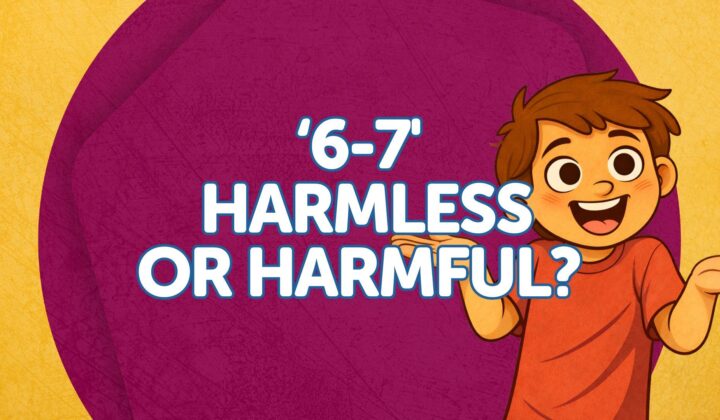Learn more about the journey that led to us equipping kids to carefully evaluate every idea they encounter.
Meet members of our team who have contributed to curriculum development.
Hear from real users of the Foundation Curriculum.
Learn what we believe about God, Jesus, Scripture, and more.
Should Christians Do Yoga? Teaching Discernment in a World of Mixed Messages
Hello, friends, and welcome to the Foundation Worldview Podcast.
Today's question is one I’m really grateful to answer. It says:
"How can I help my daughter think biblically about yoga when many of her friends are participating in it? Is it okay for Christians to participate in yoga?"
Now, I’ve answered a question about yoga on a previous episode, and after reviewing the comments on YouTube, I realized I didn’t clearly communicate everything I had hoped to. So I’m thankful for another opportunity to speak to this topic and to clarify.
On the Foundation Worldview Podcast, our goal is to equip you to disciple the children God has placed in your care—to help them evaluate every idea they encounter and understand the truth of the biblical worldview. I’m your host, Elizabeth Urbanowicz, and I’m thrilled you’ve joined me for this episode.
Before We Dive In…
If you’ve found this podcast helpful, would you take just a few seconds to rate and review or like and subscribe? Doing so helps ensure you won’t miss future episodes—and it helps us reach more Christian adults who want to disciple their kids well.
Step One: Identify the Type of Yoga
Now, to answer this question about yoga, the first step is to identify what kind of yoga is being done. If your daughter’s friends are involved in yoga at a secular yoga studio, the practice they're engaging in is not just exercise—it is spiritual and deeply rooted in Hinduism.
In preparing for this episode, I came across a helpful article from the Cleveland Clinic titled "Yoga vs. Pilates: The Difference Between Two Great Exercises." I appreciated how clearly it distinguished between yoga and Pilates—two practices that people often confuse or use interchangeably.
The article explains:
"Pilates was invented by a German anatomist in 1926 as a way of conditioning the body and providing rehabilitation to World War I veterans... The goal was to help people with injuries to heal using core strength and guided exercises."
In contrast, it says:
"Yoga is rooted in a centuries-old spiritual practice meant to enhance your mind-body connection to achieve enlightenment. Traditional yoga is more than just a workout routine. It’s a lifestyle that embraces a philosophy and a set of tenets built around nourishing your physical, emotional, and spiritual growth."
It continues:
"Yoga teaches you how to navigate life by creating and honoring boundaries, embracing a no-harm mentality, surrendering to the divine, and aligning your mind, body, and spirit."
And remember—this is from a secular source! Even the Cleveland Clinic is making it clear that yoga is not just stretching. It’s a holistic spiritual system.
The Spiritual Roots of Yoga
Yoga originated in the East, and its ultimate goal was to help a person join themselves to an impersonal being called Brahman. The word "yoga" actually means "to yoke." So yoga is about yoking yourself to Brahman, which is a false god according to the biblical worldview.
When yoga came to the West, it was brought by individuals who understood that Americans wouldn’t embrace something overtly spiritual. One of the key figures in bringing yoga to the U.S. was a man named Paramahansa Yogananda—and I may be mispronouncing that name. (If I say it five times fast, maybe I’ll get it right eventually!) But what’s important is that he and others linked yoga to the health and wellness trend that was already popular in the U.S. This strategy hid the spiritual aspects of yoga so that Americans would be more comfortable embracing it.
So if your daughter’s friends are participating in this kind of yoga—at a secular yoga studio where the practice involves traditional poses and an overall philosophy of mind-body-soul connection, surrender to the divine, and non-harm principles—you need to talk with her directly about it.
I’d encourage you to read that Cleveland Clinic article with her. Just search “Yoga vs. Pilates Cleveland Clinic”—it will pop right up. And if your daughter is age 10 or older, you can also watch an episode of the Beckett Cook Podcast with her. Beckett interviews a former yoga instructor who shares in great detail how deeply rooted yoga is in Hinduism.
This form of yoga is not biblical—it’s not just stretching. It’s engaging in a false religious system, and we need to help our children understand this clearly.
What About “Christian” Yoga?
Now, there are other forms of yoga—ones that happen in Christian contexts. For example, there’s a large church near me that has a public gym facility. They offer yoga classes daily. In these classes, they still use traditional yoga poses, which were originally created to yoke a person to Brahman. But the spiritual philosophy behind the practice is removed. These classes typically involve quiet music, stretching, and breathing, without any religious instruction or spiritual language.
Many biblically faithful Christians participate in this type of yoga. If this is what your daughter’s friends are doing, I’d encourage you to have a conversation with her about the differences. Teach her how to evaluate both secular yoga and this Christian-context version, and help her understand that some Christians do engage in yoga that doesn’t include the spiritual elements.
This is where I got in trouble in my last podcast on yoga—I focused primarily on this version of yoga. But here’s why I bring it up: we need to be honest with our children. If we make sweeping claims like, “No real Christian does yoga,” and then our kids later meet faithful believers who do yoga, it can cause them to doubt everything else we’ve taught them.
We should never give our children a reason to distrust the truth by being careless with our words.
But Should We Still Avoid It?
That being said, I would still recommend staying away from even the so-called Christian versions of yoga—for a few key reasons.
1. Hidden Spiritual Elements
Even in Christian yoga classes, there’s a danger that elements of Hinduism may creep in unintentionally. Many instructors haven’t researched the origin and meaning of the poses and practices they’re using. This can be spiritually dangerous.
2. Causing Others to Stumble
Even if your yoga class is purely physical, it could lead others—believers or unbelievers—to confusion. A less mature Christian might see you attending and assume all yoga is safe. They could then attend a very different yoga class steeped in spiritual practices, not realizing the danger they’re walking into.
Scripture calls us to care deeply about how our actions impact others in the body of Christ (Romans 14). Even if it’s just “stretching,” we must be cautious.
A Better Option: Pilates
That’s why I suggest that, instead of trying to find a safe version of yoga, we encourage our children to participate in Pilates or other forms of exercise that don’t carry this spiritual baggage. Pilates offers many of the same physical benefits—core strength, flexibility, balance—without the spiritual confusion.
Your daughter could even invite her friends to join her in a Pilates class instead!
A Final Word: Clarity and Care
If you do choose to participate in a yoga class that is stripped of spiritual elements, make sure that everyone attending with you—and those who know about it—understand the difference. Clarity matters. You might even consider calling the class something else, like “Stretching Level 1,” so that people aren’t confused about what’s happening.
The key here is wisdom. Help your daughter distinguish between what is biblically permissible and what is not wise or helpful. Yoga, in its traditional form, is a spiritual practice incompatible with Christianity. Even in its modern forms, it can carry risks we want to avoid.
That’s a wrap for today’s episode.
If you have a question you’d like me to answer on a future Foundation Worldview Podcast, you can submit it at
foundationworldview.com/podcast
As we close, my prayer is that no matter what situation you or the children in your care face, you would trust that God is working all things together for your good—using every circumstance to conform you more into the image of His Son.
See you next time.
Related Posts and insights

Affirm the Questions of the Children You Are Teaching
Affirm children’s questions to foster curiosity and lifelong learning. Discover a simple, biblical strategy for building a love of learning.

How Should Christians Respond to the "6 7" Trend? Helping Kids Think Biblically About Cultural Phrases
How should Christian parents handle the "six seven" trend? Learn to avoid the genetic fallacy and guide your kids to think biblically about cultural phrases.

How Do We Explain the Doctrine of Election to Kids?
How do you explain the doctrine of election to kids without causing fear? Discover how Scripture's promises bring peace and assurance to children's hearts.




